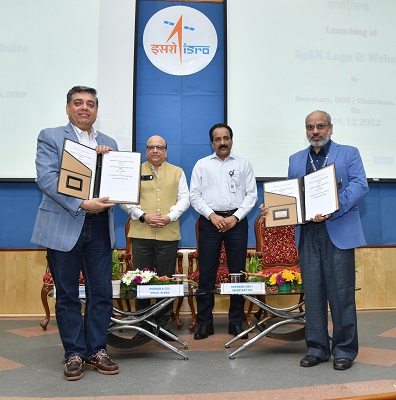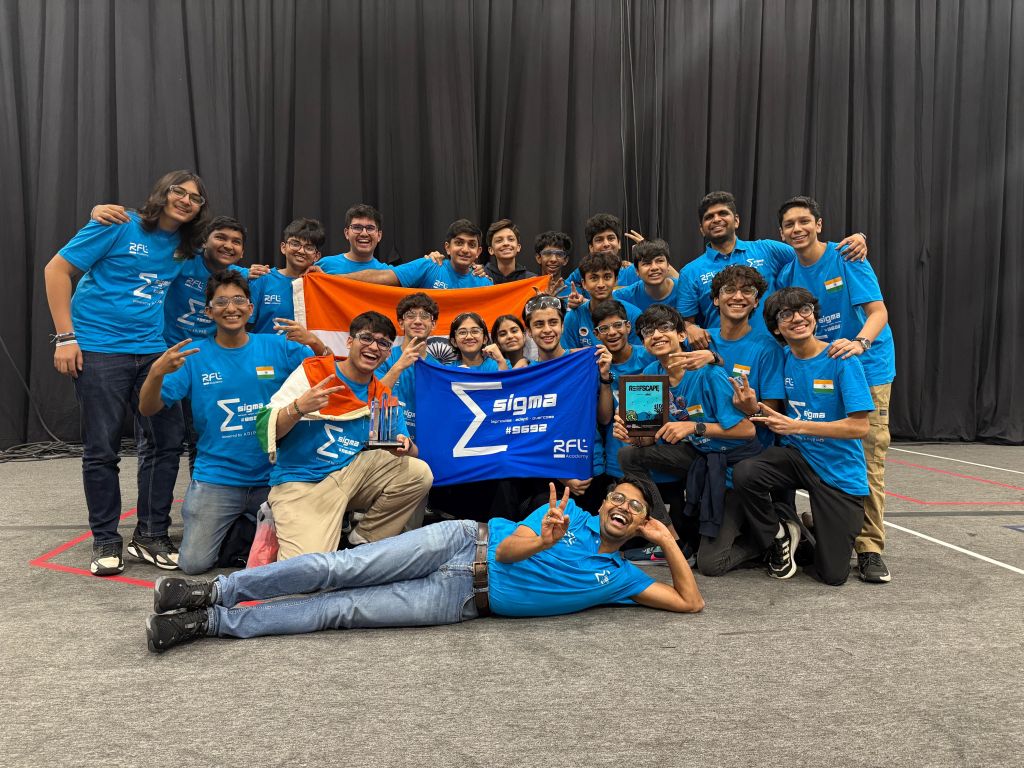Indian Space Research Organisation (ISRO) and Social Alpha today signed an MoU to launch SpaceTech Innovation Network (SpIN), India’s first dedicated platform for innovation curation and venture development for the burgeoning space entrepreneurial ecosystem. A one-of-its-kind public-private collaboration for start-ups and SMEs in the space industry, this novel partnership is a significant step forward in providing further stimulus to India’s recent space reform policies and will work towards identifying and unleashing the market potential of the most promising space tech innovators and entrepreneurs in India. SpIN will primarily focus on facilitating space tech entrepreneurs in three distinct innovation categories: Geospatial Technologies and Downstream Applications; Enabling Technologies for Space & Mobility; and Aerospace Materials, Sensors, and Avionics.
 |
ISRO and Social Alpha have announced SpIN, India’s first dedicated platform for innovation curation and venture development for the burgeoning space entrepreneurial ecosystem
“Space applications cut across various domains from earth to the sky. Innovative technologies are expected to bring a paradigm shift in utilising space applications to maximise the economic, social, and environmental benefits for the larger society. I wish the SpIN platform would create a level playing field for various stakeholders to collaborate and contribute to the space ecosystem in the country,” says Shri. S Somanath, Chairman, ISRO.
According to the Economic Survey Report 21-22, there are now over 100 active space start-ups in India – the number of start-ups in this sector has more than doubled in the last year alone. Through this partnership, ISRO will support the creation of an open innovation and scale-up platform for all space ecosystem stakeholders and promote active collaboration to make early-stage space start-ups successful. This also marks the entry of Social Alpha in the area of space tech, a vertical that has the potential to grow manifolds and introduce innovations that can directly impact millions of lives and livelihoods.
“Space science, technology, and data have the potential to contribute to various Sustainable Development Goals with high-impact applications in ensuring food security, reducing disaster risks, preventing humanitarian crises, and monitoring natural resources. At Social Alpha, we have stayed committed to our goal of bringing breakthrough innovations to the social sector with applications across climate, health, and livelihoods, and this partnership with ISRO will significantly strengthen our ability to create impact,” says Manoj Kumar, Founder, Social Alpha.
In line with the partnership announcement, SpIN has launched its first innovation challenge. Early-stage start-ups for developing solutions in areas of maritime and land transportation, urbanisation, mapping and surveying, disaster management, food security, sustainable agriculture, environmental monitoring, and natural resources management among others are encouraged to apply.
The selected start-ups and innovators will be able to access both Social Alpha’s and ISRO’s infrastructure and resources as per the prevailing guidelines. They will be provided active handholding in critical areas including access to product design, testing and validation infrastructure, intellectual property management, go-to-market strategy, and access to long-term patient capital, among other technical and business inputs. Applications are open from December 6, 2022, to February 6, 2023.
(Disclaimer: The above press release comes to you under an arrangement with NewsVoir India and this publication takes no editorial responsibility for the same)





